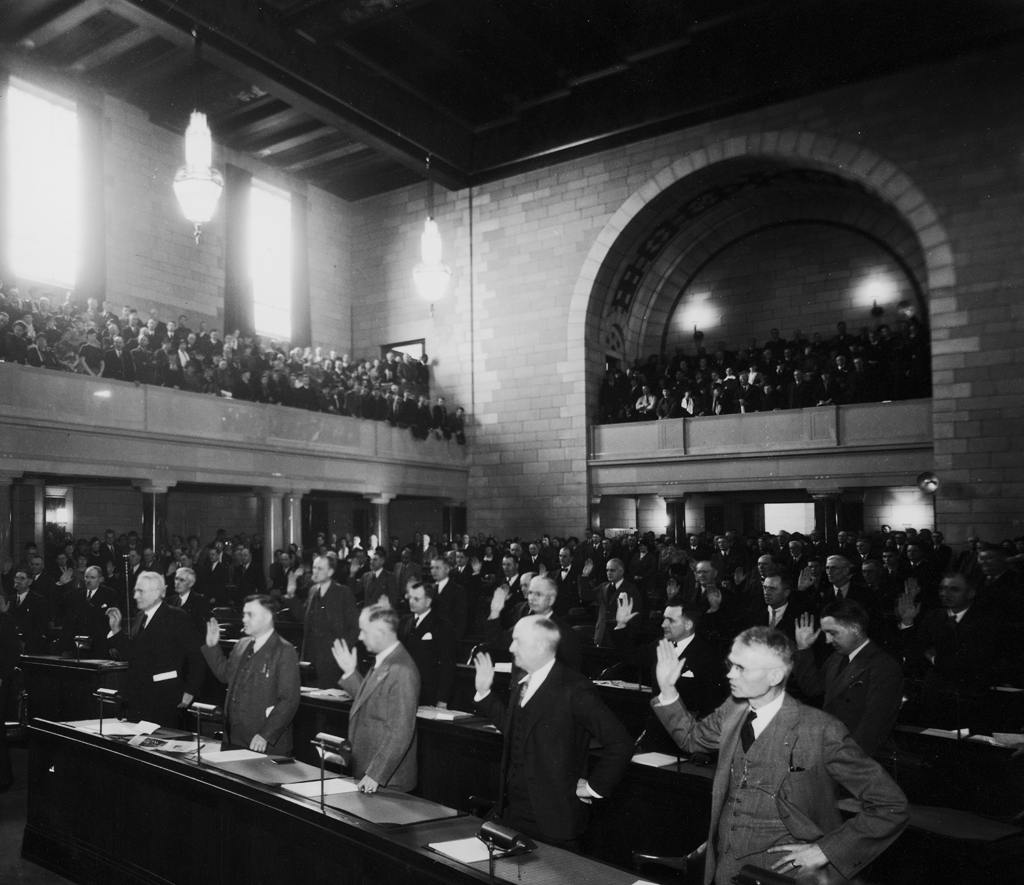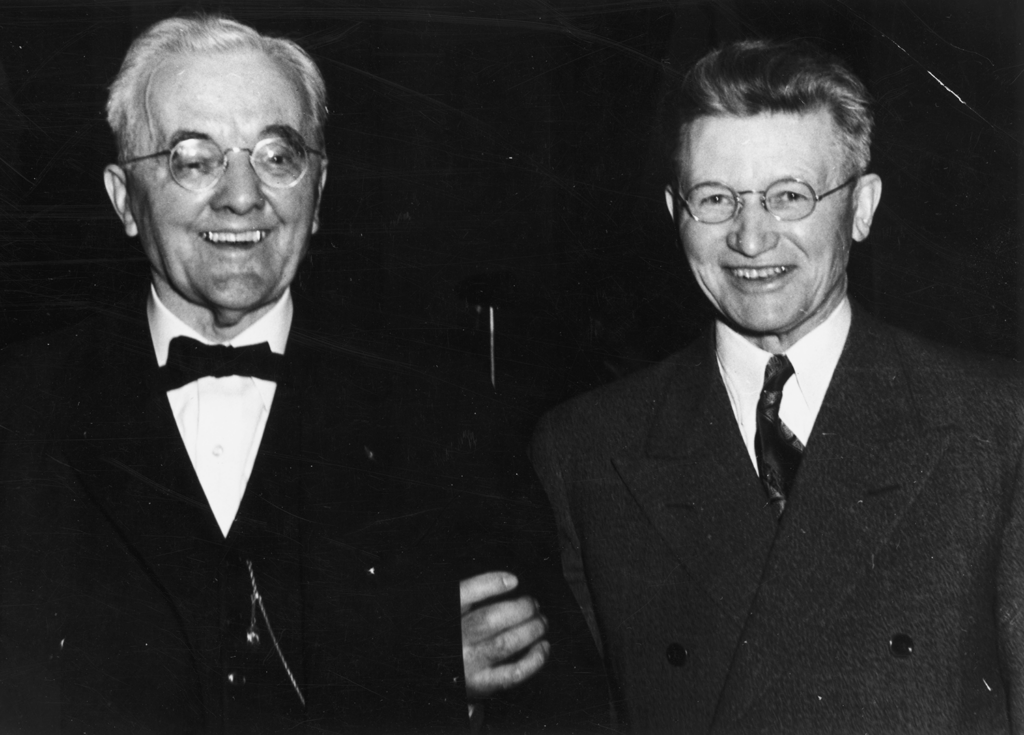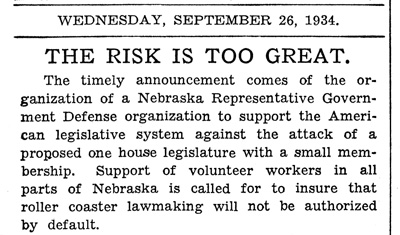
Opening day at Nebraska’s first unicameral legislative session, January 5, 1937. HN RG2183-1937-105-1.
In the 1934 election, Nebraskans voted on two measures with funny-sounding names: a unicameral legislature and pari-mutuel betting. Both measures passed. It has long been rumored that gambling backers worried that voters might be confused by the two strange words. And since a measure to repeal statewide prohibition was also on the ballot, they told people just to vote yes on everything. Thus, Nebraska got a one-house legislature because the people wanted booze and horse racing.
It’s a good story, but Thomas Irvin takes issue with it in “The Political and Journalistic Battles to Create Nebraska’s Unicameral Legislature,” in the Spring 2011 issue of Nebraska History Magazine. Looking at the election statistics for each of the ballot measures and concluded that this explanation is “likely overstated.” He points out that the the Unicameral measure gained a considerably higher percentage of the vote than either of the other ballot measures, and argues that “voters of Nebraska went to the polls very well informed, thanks to an aggressive campaign from both sides.”
In taking a new look at the oft-told story of the 1934 unicameral campaign, Thomas also corrects the common impression that U.S. Senator George Norris almost single-handedly persuaded Nebraskans to support the bill. Norris was “the measure’s greatest advocate and most visible backer,” Thomas writes, but he shows that Norris didn’t act alone.

U.S. Sen. George Norris and University of Nebraska Political Science Department chair John Senning were allies in the unicameral campaign. HN RG3298-30-71.
For example, University of Nebraska Political Science Department chair John Senning was part of a citizens’ committee that worked out the details of how the unicameral system would actually operate. Senning jeopardized his career by doing so. Thomas writes,
The Board of Regents of the University was upset that one of their department heads had become embroiled in a controversial issue, and on election night his [Senning’s] wife Elizabeth found him at the radio, “listening to election returns in order to see if I still have a job at the University come morning.”
Thomas also reveals that with the exception of the Lincoln Star, the Hastings Daily Tribune, and a half-dozen weeklies, every newspaper in the state opposed the unicameral legislature.
Nevertheless, the measure passed with nearly 60 percent of the vote. The new law took effect with the 1937 legislative session.
—David Bristow, Editor, Nebraska History Magazine

From a folder of John Senning’s newspaper clippings. Opponents warned that a one-house legislature would be too hasty in passing new legislation. HN RG2006AM-18-69).




